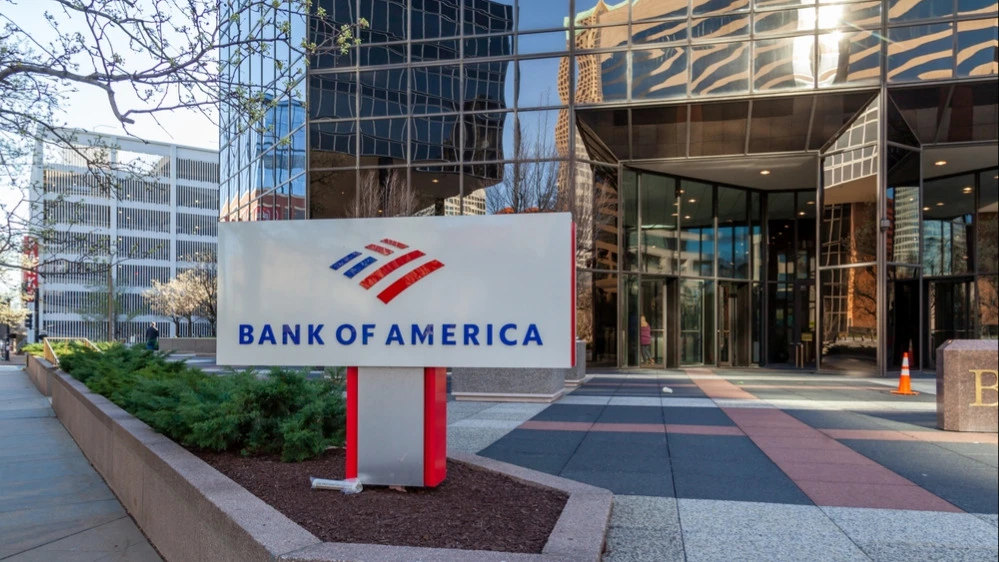Fund managers expect highest returns from non-US equities - BofA survey
This is the view of market participants who together manage $0.5 trillion in assets

Fund managers believe global stocks will perform better than U.S. stocks over the next five years, the latest Bank of America survey showed. It's further evidence that more investors are no longer believing in continued U.S. dominance of the stock market, wrote Bloomberg. Other important survey results: the popularity of betting on gold's rise and the most pessimistic view of the dollar in twenty years.
Details
According to a BofA survey, 54% of fund managers believe the best asset class will be international equities. Only 23% bet on U.S. securities. Gold was chosen by 13% and bonds by only 5% of respondents. The survey, which was conducted from June 6 to June 12, involved 190 market participants with combined assets of $523 billion.
This is the first time the BofA survey has asked investors to forecast returns over a five-year horizon. The results are consistent with the "sell America" strategy, which involves reducing the share of U.S. assets in a portfolio. It has become popular amid the imposition of higher duties on U.S. imports and the promotion of Donald Trump's bill, which is expected to increase the budget deficit by $2.4 trillion over ten years, Bloomberg explains.
If the managers' assessment turns out to be correct, it would be a reversal of one of the most reliable investment strategies of recent years. U.S. stocks have outperformed international stocks in 13 of the past 15 years, the agency calculated. It predicts the S&P 500 Index is likely to lose more to other global indexes by the end of 2025 than at any time since 2009.
What else the BofA survey showed:
- 41% of respondents named betting on rising gold prices ("long on gold") as the most crowded and popular investment direction for the third month in a row. The former market favorite - betting on the rise in the price of shares of the "Magnificent Seven", which led the market over the past two years, is no longer considered the most "overheated" position, explains BofA
- Managers reported that they have the largest "overweight" in their portfolios in eurozone, emerging markets and bank stocks. Less attractive are U.S. equities, the dollar and energy. "Overweight" and "underweight" in portfolios shows the alignment of a particular investor's account with a benchmark such as MSCI World or some other index.
- "Underweight" on the US dollar came in at 31% of investors surveyed, the most pessimistic figure in 20 years.
- 21% of respondents predict bond yields will rise over the next year, the highest since August 2022.
- When asked about the impact of Trump's bill increasing budget spending, 59% of CEOs said they do not expect economic activity in the U.S. to increase in the next six months.
- Expectations of a recession have fallen markedly over the past two months: while 42% of investors previously thought it was possible over the next 12 months, 36% now believe it is unlikely.
What the analysts are saying
Heightened tensions in the Middle East are heightening investor concerns about rising inflation and the timing of U.S. interest rate cuts. JPMorgan Chase's trading department abandoned its tactically bullish view on U.S. stocks, wrote Bloomberg. Analysts cited the intensification of risks and the increased likelihood of a pullback in the S&P 500 index.
"While investors have often taken the 'buy on the dip' tactic this year and been rewarded for it, we think it's better to reduce risk now," said Andrew Tyler, head of global market intelligence at JPMorgan. He accurately predicted a multi-week market rally in April, noted Bloomberg.
Tyler said there were signs that investor risk appetite, which helped the S&P 500 rise 21% from its April low, was waning. The index has been hovering near the 6,000-point mark for a month, and Wall Street's so-called fear index, the VIX, is near the 20-point mark, reflecting lingering worries about geopolitical and other threats.
Matt Maley, market strategist of Miller Tabak + Co, agrees with JPMorgan analyst. He believes that even if S&P 500 will again test the historical maximum, at current estimates the risk of decline exceeds the potential for growth. The index is now just 1.8% away from an all-time high. "Economic growth is still slowing, corporate earnings forecasts continue to decline. If you add geopolitical uncertainty to that, the picture is unfavorable," said Maley.
U.S. equity strategist Julian Emanuel of Evercore warns of possible volatility in the summer, with asset managers likely to cut positions in equities to lock in profits. "Today's buying on the downturn is based on the belief that the situation with Iran will be resolved quickly. But that is unlikely, and even if it were to happen, there remain a number of other looming issues," Emanuel notes.
He said the current valuation of the S&P 500, which is more than 23 times the projected earnings of its participants, implies that investors have already factored in the optimistic outcome of geopolitical conflicts without any real basis for doing so.
